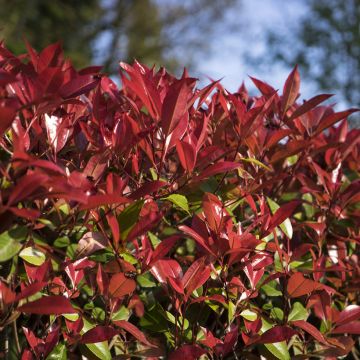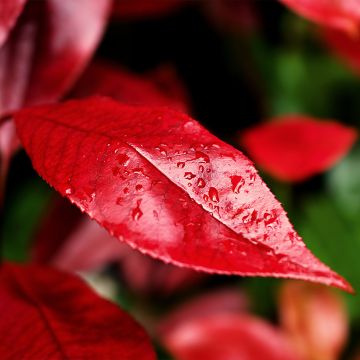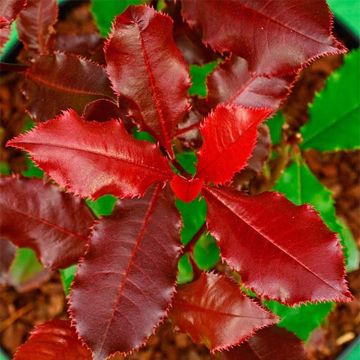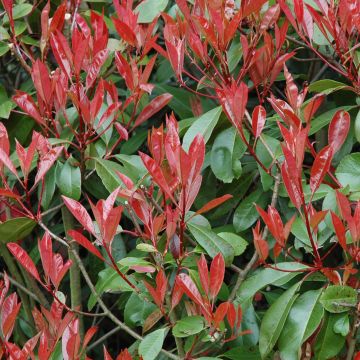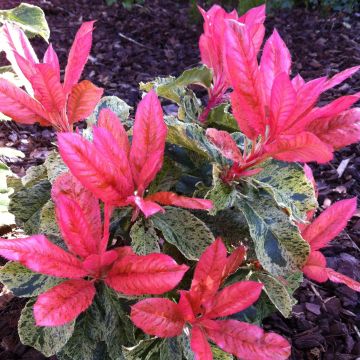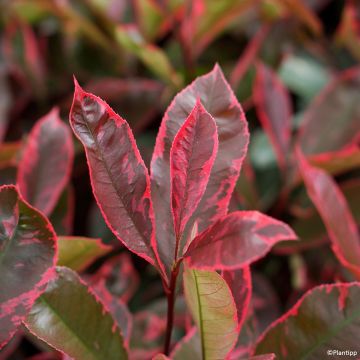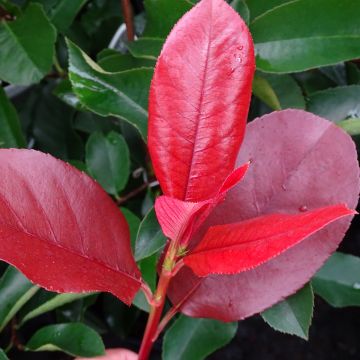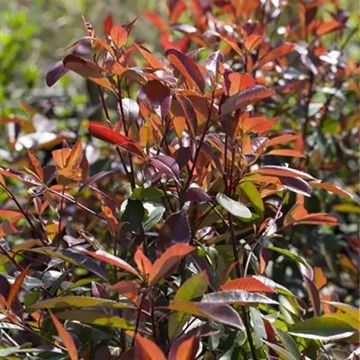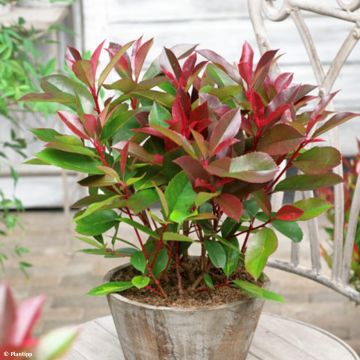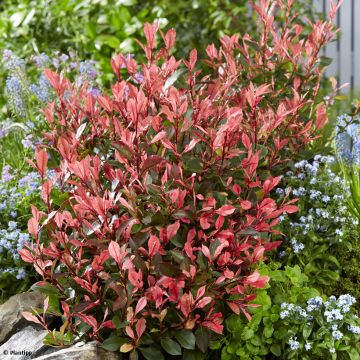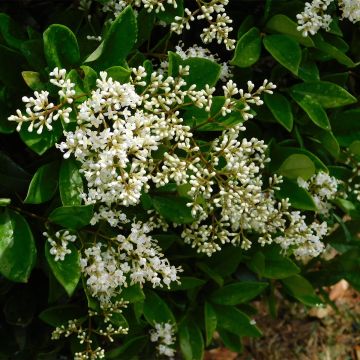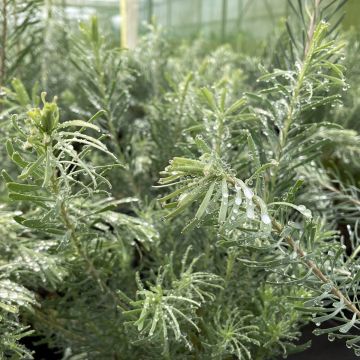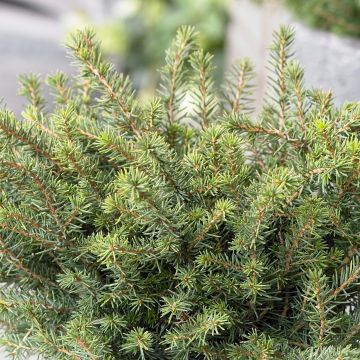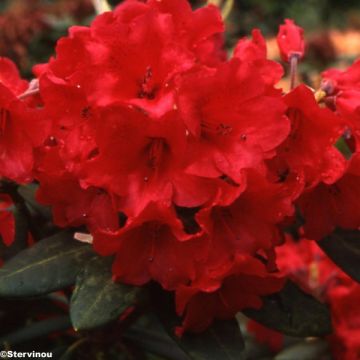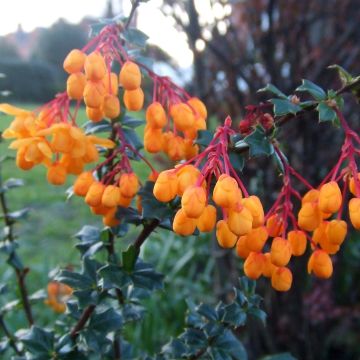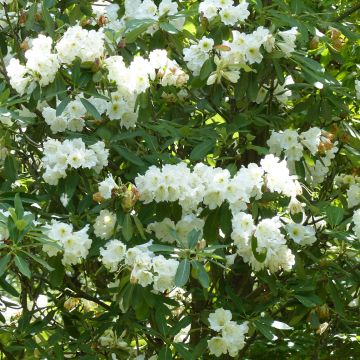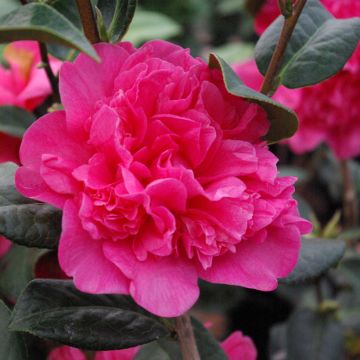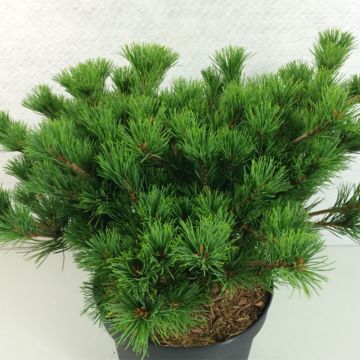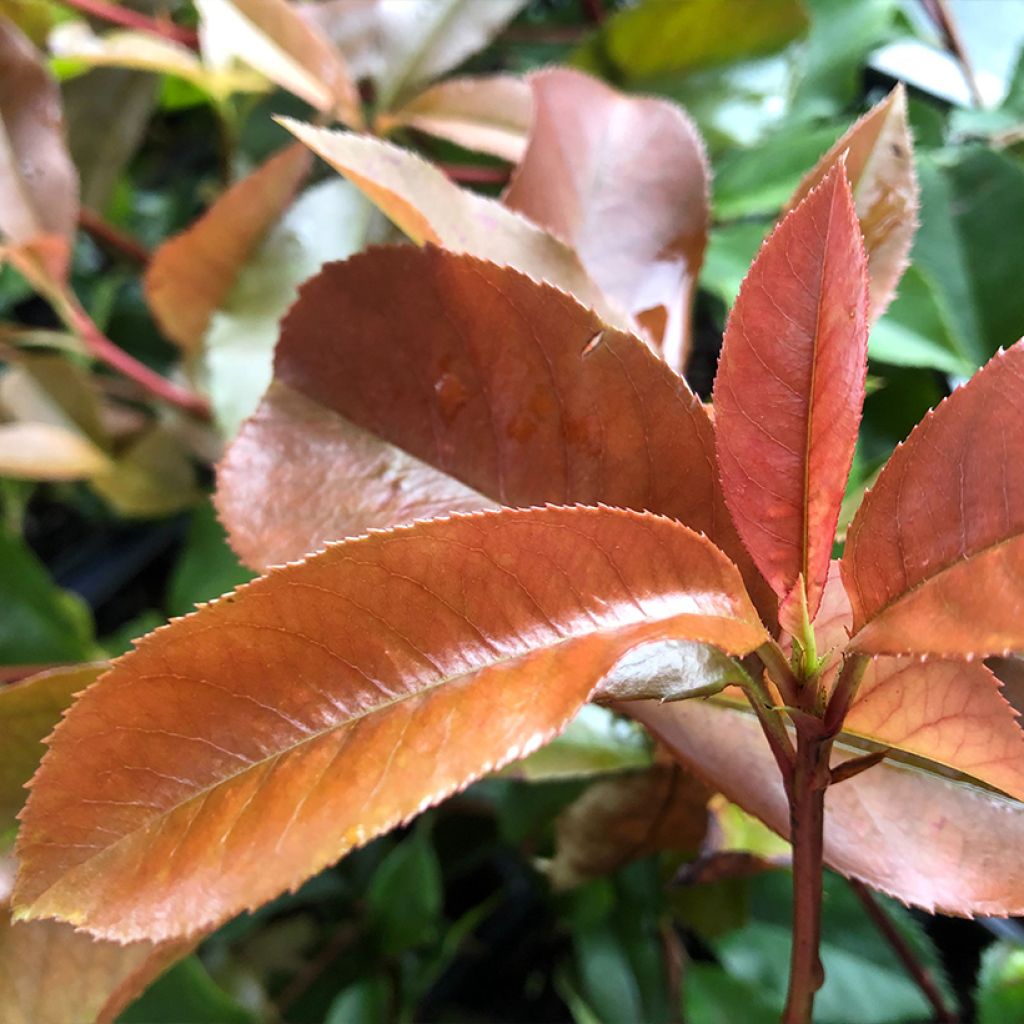

Photinia fraseri Red Robin Blood
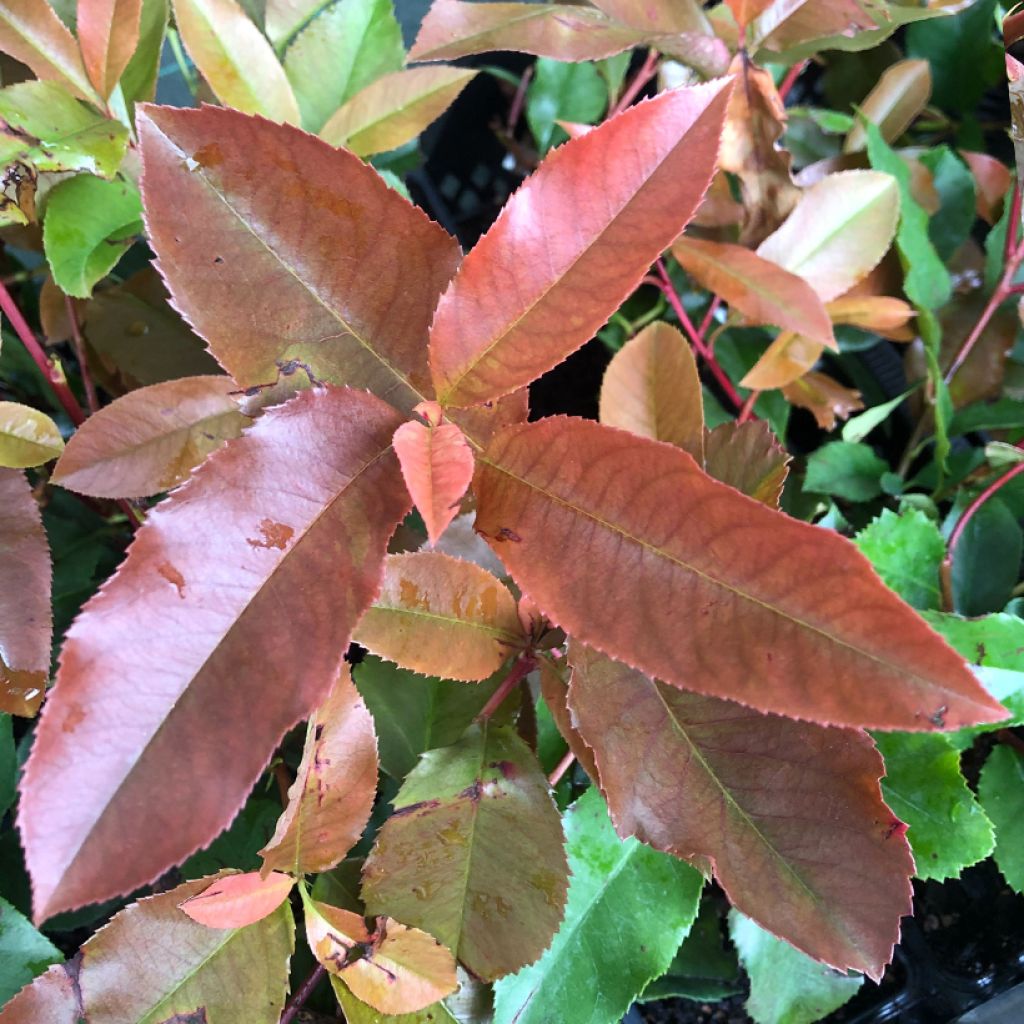

Photinia fraseri Red Robin Blood
Photinia fraseri Red Robin Blood - Christmas Berry
Photinia x fraseri Red Robin Blood
Christmas Berry, Redtip Photinia
young plants, but lovely
Anne, 15/03/2023
Special offer!
Receive a €20 voucher for any order over €90 (excluding delivery costs, credit notes, and plastic-free options)!
1- Add your favorite plants to your cart.
2- Once you have reached €90, confirm your order (you can even choose the delivery date!).
3- As soon as your order is shipped, you will receive an email containing your voucher code, valid for 3 months (90 days).
Your voucher is unique and can only be used once, for any order with a minimum value of €20, excluding delivery costs.
Can be combined with other current offers, non-divisible and non-refundable.
Home or relay delivery (depending on size and destination)
Schedule delivery date,
and select date in basket
This plant carries a 24 months recovery warranty
More information
We guarantee the quality of our plants for a full growing cycle, and will replace at our expense any plant that fails to recover under normal climatic and planting conditions.
Would this plant suit my garden?
Set up your Plantfit profile →
Description
The Photinia Fraseri 'Red Robin Blood' can be considered an improvement on the best-selling Red Robin that it surpasses with even redder spring coloration of its young leaves, ranging from bright red to dark red. The foliage then turns to a very aesthetic dark green, perfect in flower beds to enhance light flowering. Its own flowers are white-cream in spring, in the form of corymbs measuring 8 to 10 cm (3 to 4in) in diameter. Forming a tuft 2.50 to 3 m (8 to 10ft) tall and 1.50 to 2 m (5 to 7ft) wide, this beautiful bush can be planted as a standalone or in a flower bed, or especially as a hedge as it tolerates repeated pruning very well. Hardy down to -15°C (5°F), it grows in full sun or partial shade in most soils and tolerates the atmospheric pollution of our cities very well.
The Photinia belongs to the large botanical family of Rosaceae. This family gives us most of our temperate climate fruit trees (Apple trees, Pear trees, Plum trees, Apricot trees, Peach trees, etc.), but also many ornamental plants (Hawthorn, Cotoneaster, Rose of course, Prunus) as well as many wild plants that brighten up our countryside. The Photinia (x) fraseri or Fraser's Photinia is an old horticultural creation born in 1940 in the United States, resulting from the cross-breeding between the Photinia glabra, native to Japan, and the Photinia serrulata (or P. serratifolia), native to China. This hybrid has given rise to some famous cultivars, including 'Red Robin', planted on a large scale in our parks and gardens. In recent years, some beautiful improvements have been born, more compact, more colorful, and more disease-resistant.
'Red Robin Blood' is a variety very similar to the star variety 'Red Robin' but even redder, as suggested by the addition of blood in its name. In spring, it produces young shoots with intensely red leaves, ranging from bright red to dark red, which contrast well with the dark green older leaves. From April, white-cream corymbs of flowers appear, measuring 8 to 10 cm (3 to 4in) in diameter, and are very decorative against the glossy foliage. The young leaves gradually evolve into an elegant dark green.
This evergreen bush is particularly well suited for hedge making, as its habit is slightly more upright than that of Red Robin, while also tolerating pruning as well as it does. When planted alone, it will reach a height of 2.50 to 3 m (8 to 10ft), or even a little more, with a width of 1.5 to 2 m (5 to 7ft), dimensions that can be reduced by annual pruning. The flamboyant spectacle it offers in spring also encourages planting it in a flower bed in association with other plants. Its beautiful foliage, which turns dark green after spring, will then serve as a backdrop for light flowering or variegated foliage.
'Red Robin Blood' tolerates all types of well-drained soil, deep, moist to dry, neutral, or even reasonably acidic or chalky. It grows well in sunny or semi-shady situations. It is an easy-to-cultivate and easy-to-maintain bush that can withstand temperatures down to -15°C (5°F) when exposed to the sun. It is truly the epitome of an easy plant, requiring little maintenance, limited to summer pruning and a few waterings in hot periods, knowing that once well-rooted, it is quite resistant to drought. This Photinia Red Robin Blood will create superb hedges when combined with other evergreens with decorative foliage, such as the very pretty Berberis darwinii, with small dark green spiny leaves and magnificent yellow-orange flowering in April-May. The Cherry laurel Greentorch with its very upright habit will also be a good companion with its foliage of a frank green color that is very different from that of our Photinia.
If you plant it in a flower bed, choose plants with summer interest, such as the Indian Lilacs, whose crepe-like flowering with often vibrant colors enchant the garden. For a strong contrast, prefer a variety with purple foliage, such as Rhapsody In Blue, with pinkish-purple flowers. Your Photinia will also go well with white spring-flowering shrubs such as Spiraeas (S. arguta, S. thunbergii, or S. nipponica Snowmound). And to enjoy an exquisite fragrance, add a Philadelphus coronarius whose simple white flowers will perfume your garden in May-June.
Report an error about the product description
Photinia fraseri Red Robin Blood - Christmas Berry in pictures
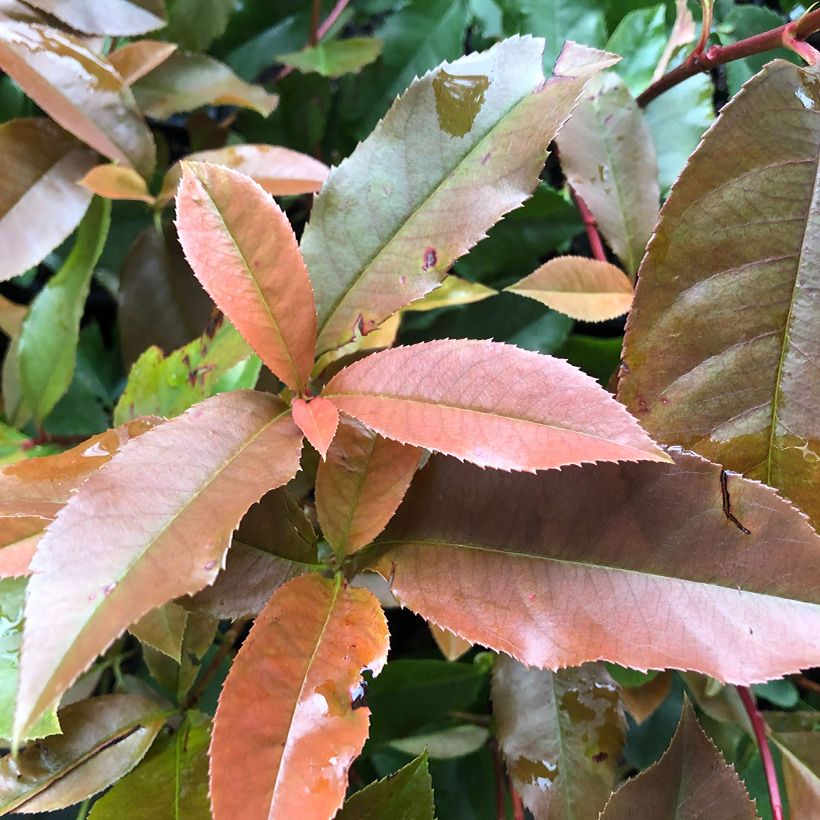

Plant habit
Flowering
Foliage
Botanical data
Photinia
x fraseri
Red Robin Blood
Rosaceae
Christmas Berry, Redtip Photinia
Cultivar or hybrid
Other Photinias
View all →Planting and care
Photinia fraseri Red Robin Blood can be planted in spring or autumn in any deep, moist to occasionally dry, fertile, and well-drained soil. It appreciates a sunny or partially shaded position, sheltered from cold and harsh winds. It also tolerates shady locations, although at the expense of flowering and the intensity of young foliage coloration. The addition of compost is necessary at planting. Water well for the first two years, once or twice a week, especially during hot and dry summers. Mulch the soil to keep it cool in hot regions, and protect the base in winter in cold regions during the first few years in case of severe frost. Once well-established, Photinia fraseri tolerates summer drought reasonably well.
In humid conditions or, conversely, in certain dry and poor soils, Photinias can be affected by a fungus (entomosporiosis). Monitor the leaves for the appearance of black-red spots and treat with Bordeaux mixture if necessary. The vine-plant beetle can also nibble on the edges of the leaves at night, while their larvae can attack the roots; treat the soil with nematodes that parasitize the larvae.
Planting period
Intended location
Care
-
, onOrder confirmed
Reply from on Promesse de fleurs
Similar products
Haven't found what you were looking for?
Hardiness is the lowest winter temperature a plant can endure without suffering serious damage or even dying. However, hardiness is affected by location (a sheltered area, such as a patio), protection (winter cover) and soil type (hardiness is improved by well-drained soil).

Photo Sharing Terms & Conditions
In order to encourage gardeners to interact and share their experiences, Promesse de fleurs offers various media enabling content to be uploaded onto its Site - in particular via the ‘Photo sharing’ module.
The User agrees to refrain from:
- Posting any content that is illegal, prejudicial, insulting, racist, inciteful to hatred, revisionist, contrary to public decency, that infringes on privacy or on the privacy rights of third parties, in particular the publicity rights of persons and goods, intellectual property rights, or the right to privacy.
- Submitting content on behalf of a third party;
- Impersonate the identity of a third party and/or publish any personal information about a third party;
In general, the User undertakes to refrain from any unethical behaviour.
All Content (in particular text, comments, files, images, photos, videos, creative works, etc.), which may be subject to property or intellectual property rights, image or other private rights, shall remain the property of the User, subject to the limited rights granted by the terms of the licence granted by Promesse de fleurs as stated below. Users are at liberty to publish or not to publish such Content on the Site, notably via the ‘Photo Sharing’ facility, and accept that this Content shall be made public and freely accessible, notably on the Internet.
Users further acknowledge, undertake to have ,and guarantee that they hold all necessary rights and permissions to publish such material on the Site, in particular with regard to the legislation in force pertaining to any privacy, property, intellectual property, image, or contractual rights, or rights of any other nature. By publishing such Content on the Site, Users acknowledge accepting full liability as publishers of the Content within the meaning of the law, and grant Promesse de fleurs, free of charge, an inclusive, worldwide licence for the said Content for the entire duration of its publication, including all reproduction, representation, up/downloading, displaying, performing, transmission, and storage rights.
Users also grant permission for their name to be linked to the Content and accept that this link may not always be made available.
By engaging in posting material, Users consent to their Content becoming automatically accessible on the Internet, in particular on other sites and/or blogs and/or web pages of the Promesse de fleurs site, including in particular social pages and the Promesse de fleurs catalogue.
Users may secure the removal of entrusted content free of charge by issuing a simple request via our contact form.
The flowering period indicated on our website applies to countries and regions located in USDA zone 8 (France, the United Kingdom, Ireland, the Netherlands, etc.)
It will vary according to where you live:
- In zones 9 to 10 (Italy, Spain, Greece, etc.), flowering will occur about 2 to 4 weeks earlier.
- In zones 6 to 7 (Germany, Poland, Slovenia, and lower mountainous regions), flowering will be delayed by 2 to 3 weeks.
- In zone 5 (Central Europe, Scandinavia), blooming will be delayed by 3 to 5 weeks.
In temperate climates, pruning of spring-flowering shrubs (forsythia, spireas, etc.) should be done just after flowering.
Pruning of summer-flowering shrubs (Indian Lilac, Perovskia, etc.) can be done in winter or spring.
In cold regions as well as with frost-sensitive plants, avoid pruning too early when severe frosts may still occur.
The planting period indicated on our website applies to countries and regions located in USDA zone 8 (France, United Kingdom, Ireland, Netherlands).
It will vary according to where you live:
- In Mediterranean zones (Marseille, Madrid, Milan, etc.), autumn and winter are the best planting periods.
- In continental zones (Strasbourg, Munich, Vienna, etc.), delay planting by 2 to 3 weeks in spring and bring it forward by 2 to 4 weeks in autumn.
- In mountainous regions (the Alps, Pyrenees, Carpathians, etc.), it is best to plant in late spring (May-June) or late summer (August-September).
The harvesting period indicated on our website applies to countries and regions in USDA zone 8 (France, England, Ireland, the Netherlands).
In colder areas (Scandinavia, Poland, Austria...) fruit and vegetable harvests are likely to be delayed by 3-4 weeks.
In warmer areas (Italy, Spain, Greece, etc.), harvesting will probably take place earlier, depending on weather conditions.
The sowing periods indicated on our website apply to countries and regions within USDA Zone 8 (France, UK, Ireland, Netherlands).
In colder areas (Scandinavia, Poland, Austria...), delay any outdoor sowing by 3-4 weeks, or sow under glass.
In warmer climes (Italy, Spain, Greece, etc.), bring outdoor sowing forward by a few weeks.






























